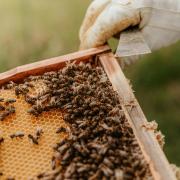
As Christmas time nears, people all over Britain prepare to spend the holiday season with their loved ones – but what of those who have no one to spend it with? In the past years loneliness across Britain has increased to the point that researchers believe that it will be the UK’s next big public health issue.
Humans, being highly social creatures, begin to feel a mental ‘pain’ when deprived of adequate contact with others. This pain is called loneliness. Loneliness can affect people of all ages, however some are more susceptible to it than others, for example, carers, older people, people suffering from mental health issues and refugees. Older people are particularly vulnerable to loneliness because of the number of factors they face. e.g. the loss of friends and family, mobility and income.
Loneliness has many physical and mental effects. The illness increases blood pressure and leads to cognitive decline, as well as being a prominent cause of depression. Moreover, according to a study in the journal ‘Perspectives on Psychological Science’ the feeling of loneliness increases the risk of death by 26% and social isolation (living without contact with others) and living alone are even worse, increasing the risk of death by 29% and 32%.
Bromley, being home to a large population of London’s elderly, is facing loneliness at an increasing rate, and we must do something to fight it.
So, what can you do? Go out, try to talk to people you don’t usually talk to, ask how people have been. Talking is the first step toward helping someone who is feeling alone.
‘Its always nice to talk’-Sedigh Yazdi, a 70 year old woman who has been feeling lonely lately.
Arman Parsa
Farringtons School


























